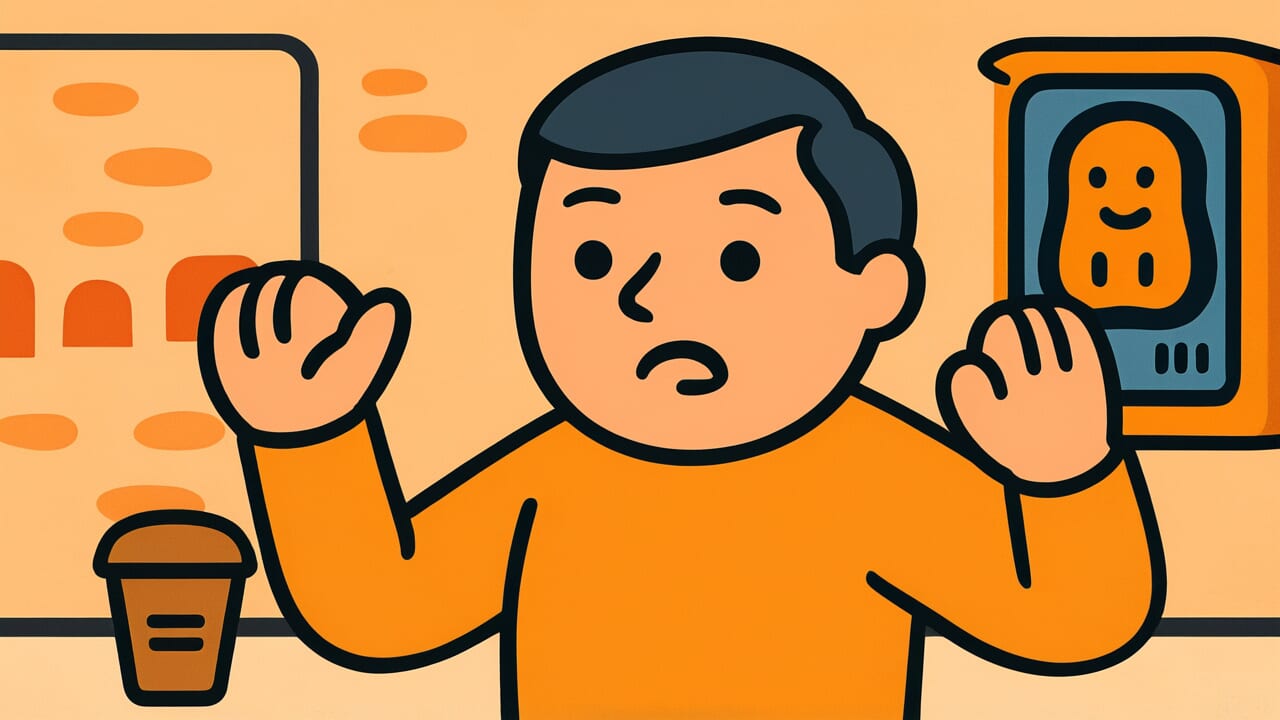How to Read “Food over romance”
Iroke yori kuike
Meaning of “Food over romance”
“Food over romance” is a proverb that describes prioritizing appetite and eating over romantic feelings or interest in the opposite sex.
It has traditionally been used to express human honesty and instinctive priorities in a humorous way.
This proverb is mainly used in two situations. First, as self-expression when someone actually chooses food over romance.
Second, when pointing out someone’s straightforward or realistic attitude as they prioritize their appetite.
Even today, people use it when they want delicious food more than a date, or when they seek satisfaction from eating rather than romantic time with a partner.
This expression acknowledges the unadorned truth of human nature and the strength of physiological needs.
It reflects a Japanese value that positively accepts being honest about realistic desires rather than ideals or social expectations.
Origin and Etymology
The exact origin of this proverb is unclear. However, it was likely already used among common people during the Edo period.
The expression appears in senryu and kyoka poetry from that era, suggesting it has a history of at least several hundred years.
“Iroke” (romance) has long been used to refer to romantic feelings and interest in the opposite sex.
Meanwhile, “kuike” literally represents appetite and the desire to eat. By contrasting these two, the proverb concisely expresses humanity’s two major desires.
What’s interesting is why these two desires came to be compared. As basic human needs, appetite directly linked to survival and sexual desire related to species preservation are biologically fundamental.
Yet in daily life, situations where both cannot be satisfied simultaneously are surprisingly common.
Many people have experienced being invited on a date while hungry, or choosing delicious food over time with a romantic partner.
This proverb expresses such honest human desires with humor. It reflects common people’s values of honesty over pretense, reality over ideals.
Interesting Facts
From a neuroscience perspective, appetite and sexual desire are closely related. Both are controlled by the same brain region called the hypothalamus.
When one is strongly stimulated, the other may be suppressed. Research shows that romantic feelings tend to weaken when hungry, while interest in the opposite sex increases when full.
This proverb could be said to have empirically captured this human physiological mechanism.
In Edo period common culture, interest in eating was extremely high, and gourmet culture flourished.
Many aspects of Japanese food culture that continue today, such as sushi, tempura, and soba, were established during this period.
Against this background, this proverb likely became widely used.
Usage Examples
- I chose that shop’s limited ramen over a date with my girlfriend – I’m completely “Food over romance”
- Despite being at a group date, he’s absorbed in eating the food – he seems to be the “Food over romance” type
Universal Wisdom
The proverb “Food over romance” reflects humanity’s essential honesty. We are beings who sometimes follow our physiological needs rather than socially desirable behavior.
Romance is beautiful, romantic, and precious in coloring our lives. However, even the most wonderful romance can fade before the physiological pain of hunger.
This doesn’t mean romance is being dismissed. Rather, it acknowledges that as long as humans are biological beings, survival-related needs take priority – recognizing our animal instincts.
This proverb has been passed down because it captures a universal truth everyone experiences.
We are beings who pursue ideals while also being controlled by realistic desires. Recognizing both aspects and sometimes allowing ourselves to be honest with our instincts.
Such tolerance and self-understanding are embedded in this proverb.
Humans are not perfect. Sometimes appetite wins over romantic feelings. But that’s not shameful – it’s proof of our humanity.
Our ancestors accepted such human weakness and honesty with humor. This proverb teaches us not to demand perfection, and that being honest with our desires is also important.
When AI Hears This
When human blood sugar drops below approximately 70mg/dL, prefrontal cortex activity significantly decreases.
The prefrontal cortex governs rational judgment and social behavior, so when hungry, there’s no capacity to process the complex desire to “be liked by the opposite sex.”
This happens because the brain strictly manages energy distribution, with a system that prioritizes sending limited glucose to areas necessary for survival.
What’s interesting is how remarkably mechanical this energy distribution priority is.
Maslow’s hierarchy of needs lists physiological needs, safety needs, belonging needs, esteem needs, and self-actualization needs in order.
But this isn’t just a psychological classification. In the brain, the hypothalamus constantly monitors physiological states like blood sugar and body temperature.
When it detects abnormalities, it immediately secretes hormones that suppress other desires.
For example, when hungry, a hormone called ghrelin increases, making food-seeking behavior the top priority, literally putting higher-order desires like romance and socializing “on hold.”
Even more fascinating is that individual will can barely intervene in this switching.
When blood sugar drops, appetite is automatically prioritized, and no matter how much you think “romance is important now,” the brain won’t listen.
This proverb had already seen through this biological absolute law hundreds of years before humans became consciously aware of it.
Lessons for Today
What this proverb teaches modern people is the importance of valuing our basic needs.
In modern society, we tend to focus only on higher-level goals like work, relationships, and self-realization.
But does working while skipping meals or staying active while cutting sleep really lead to good results?
When basic physiological needs aren’t met, you can’t demonstrate your true abilities no matter how hard you try.
Both romance and work can only be fulfilling when your body and mind are healthy first.
The phrase “Food over romance” reminds us of the importance of sometimes returning to basics.
This proverb also teaches the value of being honest with yourself. Don’t be too bound by social expectations or ideal images.
Discern what you truly need right now. Such honesty and self-understanding ultimately enrich your life.
You too should sometimes listen to your true feelings.



Comments